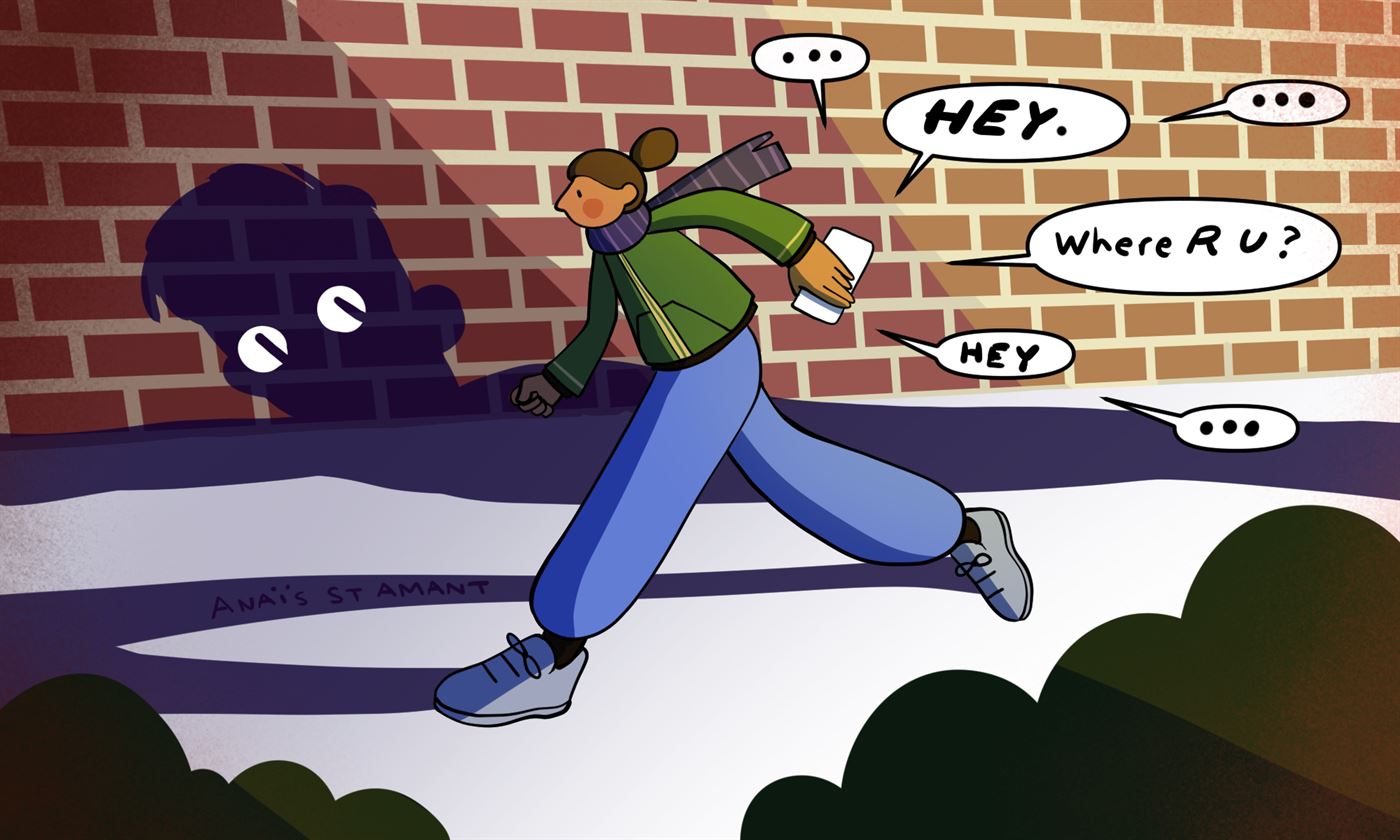Imagine going to your teacher as a child and telling them a boy on the playground is following you around, throwing stuff at you, saying mean things and refusing to leave you alone. Maybe this did happen to you, and you have a memory of a teacher, who you thought you could trust, replying with something inane like “Oh, sweetie, that just means he likes you!”
You know the boy is going to hurt you the next time he sees you. In fact, he told you he would hurt you, and even though you told the teacher that part too, they still won’t do anything.
All you can do is dread the inevitable moment when the boy will fulfill his promise, certain he’ll get away with it. You don’t know what he’s going to do, but you know it won’t be good.
Finally, imagine that you’re an adult, and the teacher is a police officer. Those feelings of helplessness don’t change, and all too often, the responses don’t, either. This is in spite of the fact that stalking and harassment are nearly always predictors of more aggressive behavior. In other words, someone who is capable of stalking is capable of far worse and will escalate if they aren’t stopped.
According to a 2018 study by the Stalking Prevention, Awareness, and Resource Center, 54% of femicide victims told police they were being stalked before they were murdered. How many of those women would still be alive today if the police had taken action after they made that initial report?
Stalking and harassment are not innocuous attempts at interaction. They are forms of intimidation and control, meant to make the victim feel as though they have no privacy and as though the stalker will always have a right to be near them.
From a chillingly young age, women are socialized to tolerate this kind of behavior from men in particular. We are told to be flattered that anyone would try so hard to gain our affection, that we should go against our gut instinct and just be grateful for the attention.
Countless movies and television shows have attempted to put a romantic spin on men relentlessly pursuing women, which has no doubt been detrimental to the public perception of such behavior. But as anyone who has been subjected to unwanted male attention knows, it is anything but flattering. Terrifying is more accurate.
In her most recent essay collection, “Girlhood,” author and professor Melissa Febos details the story of a woman whose friend reported finding horrifying messages from men on her apartment door. Total strangers had apparently been watching her for some time and were now explicitly stating their intent to break into her apartment and brutally force themselves on her.
The police response was appalling. They told the woman to “just move,” and she ended up having to. No one should have to uproot their entire life because of the actions of predatory men and indifferent authority figures, who seem to feel as if doing their job is an inconvenience when it comes to helping women when they report harassment.
When our stalkers and attackers kill us, we are memorialized — our memories glorified in the name of turning us into cautionary tales for other women who apparently provoked male violence by daring to exist. But when we survive, suddenly our stories don’t matter, probably because people find it too hard to accept the truth before its consequences are more apparent.
Is it really so much easier to mourn women instead of protecting us?
Here’s a revolutionary idea: stop punishing women for reporting harassment and fighting back against sexual assault. Instead, start telling men to get a grip and leave us alone.
If someone in your life tells you they are being stalked or harassed, believe them, and do everything in your power to help while you still can. Sympathy and justice mean nothing once we are dead.



